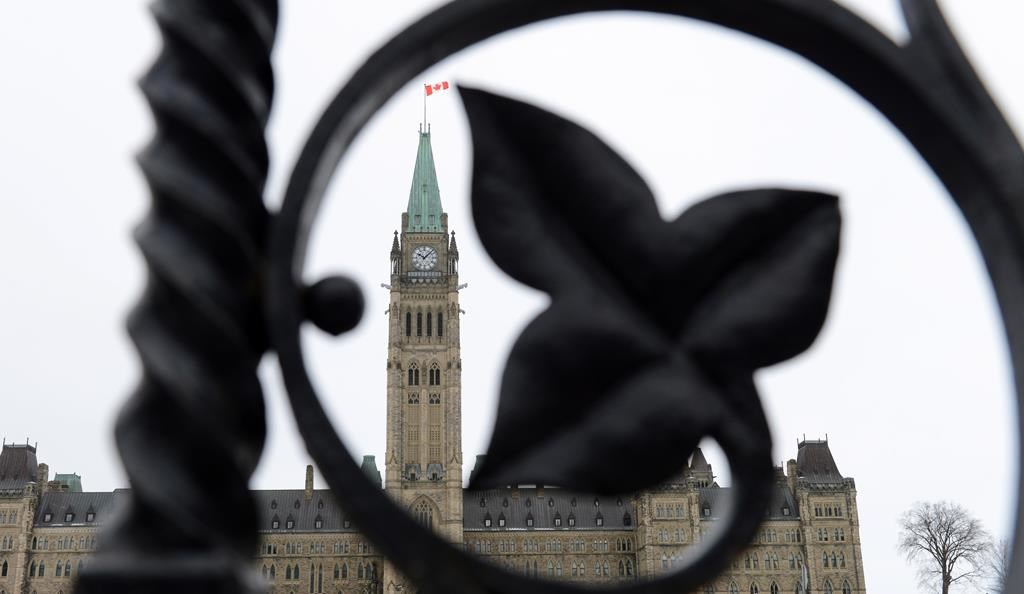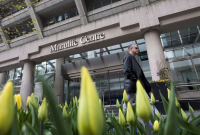Support strong Canadian climate journalism for 2025
Canada’s financial intelligence agency has admitted it signed a secret agreement with a bank that was fined $1.15 million last year for violating money laundering rules more than 1,200 times.
A spokesperson for the Financial Transactions and Reports Analysis Centre of Canada (FINTRAC) confirmed on Wednesday that Manulife Bank received the fine last year, making it the first and only bank fined by the financial intelligence agency. The confirmation from FINTRAC came two days after Manulife Financial Corporation, the bank’s parent company, admitted on Monday that Manulife was the bank in question after its name was reported by the CBC.
For nearly a year, the agency, which has a mandate to provide intelligence for law enforcement agencies on money laundering and terrorism financing, had declined to identify Manulife after first disclosing the penalty in April 2016.
“FINTRAC can also confirm that it signed a legally-binding agreement with Manulife in order to conclude court proceedings,” FINTRAC spokesperson Renée Bercier said in an email.
FINTRAC wouldn’t provide any further comment or answer questions about the terms of the agreement or the decision to sign it.
“This allowed the Centre to send an immediate message of deterrence to the other 31,000 businesses” that are subject to Canada’s Proceeds of Crime (Money Laundering) and Terrorist Financing Act, Bercier said.
Critics with expertise in money laundering regulations have said that keeping the bank's name secret was no deterrent at all, but FINTRAC has said that it has seen an increase in reports from its regulated businesses since the fine was first announced.
A spokesperson for Finance Minister Bill Morneau, the minister responsible for FINTRAC, said the minister would not comment on the agreement and declined to answer further questions about whether the minister was involved in, or aware of, the decision to sign the agreement that kept Manulife’s name secret for almost a year. Morneau's director of communications, Daniel Lauzon, deferred comment to FINTRAC, writing in an email that, “The decision-making authority on all these matters lies with” the agency.
Documents obtained by National Observer under access to information legislation show that FINTRAC and the minister's office communicated after National Observer and the Toronto Star contacted FINTRAC in December 2016 to ask detailed questions about the identity of the bank. After receiving inquiries from National Observer about the fined bank, a FINTRAC communications employee contacted members of the Finance Canada communications team to tell the ministry to expect a story.
When asked about the fine in April 2016, shortly after it was announced, Prime Minister Justin Trudeau said he was "continuing to look for ways to increase transparency and accountability across all businesses in Canada and around the world, and we continue to be open to suggestions."
Manulife received the $1.15 million penalty after FINTRAC found it had violated Canada's money laundering rules over 1,200 times by failing to report 1,178 large electronic transfers, 45 large cash deposits and activity involving the account of a client who was at the time under investigation for mail fraud in the U.S.
— Additional reporting by Mike De Souza






Comments
I'm torn between boycotting Manulife and investing in it. The former is moral; the latter, practical. They have a demonstrated ability to profit from breaking the law.
FINTRAC seems to be contributing to the weakness of the Canadian government approach to financial wrongdoing by the rich and powerful. The failure to disclose the name of Manulife after levying a fine on the company chose a complete lack of transparency. It seems probable that nothing would have been disclosed without probing by investigative reporters.
Without considerably more disclosure neither the government nor the citizens can judge the adequacy of the fine. At $1.5 million for 1200 incidents, the prices about $1250 per incident. If we don’t know the value of the transfers or the fees recovered, it is impossible to judge the adequacy of the penalty.
In addition to posing possible tax problems, this involves money laundering which could be used to finance terrorism or other illegal activity
FINTRAC’s approach to handling wrongdoing by companies and the CRA’s timid approach to dealing with rich and powerful companies and individuals in Canada contribute significantly to Canada’s growing reputation as an international tax haven in addition to reducing much needed tax revenue on the part of the government
Contrary to the Liberal election promise of transparent governance, the current finance minister has refused to say anything about the Manulife case. We get vague promises from the Prime Minister that it is a serious matter for them. He has mentioned how much money they put into dealing with tax evasion. But that is no different from the Harper government telling us how much money they are spending on various issues. It is not enough to tell the public that they are “working hard” or “spending hundreds of millions of dollars on the issue”; - to run a transparent government they have to give citizens an idea of exactly what they’re doing. In this case tightening up penalties and seeing that they are applied would at least be a start. Without such a move, it is hard to believe the government is serious about solving the issue